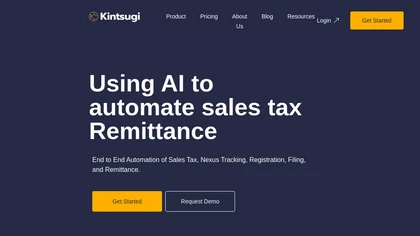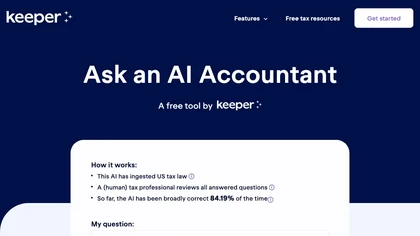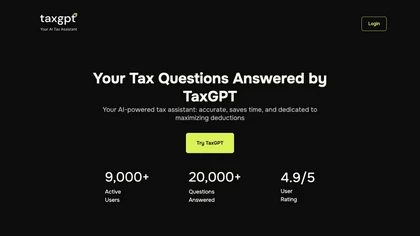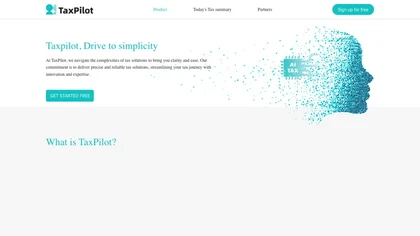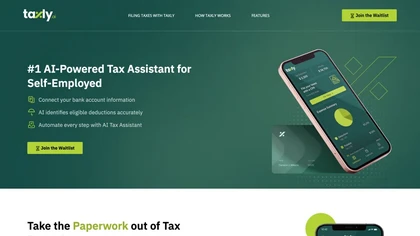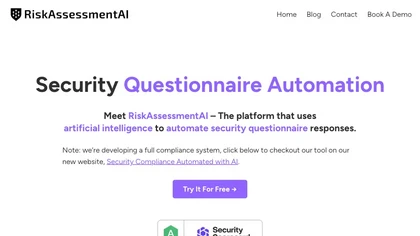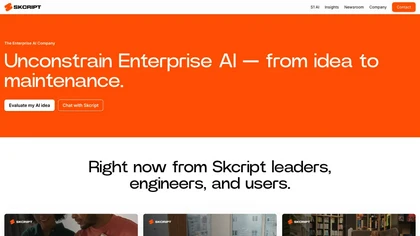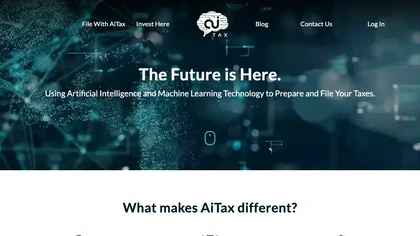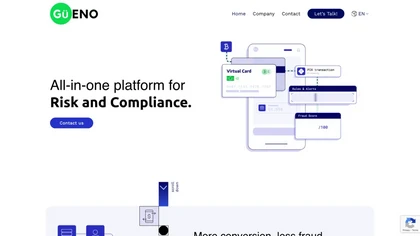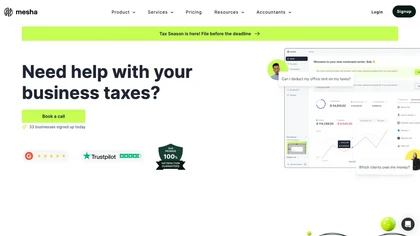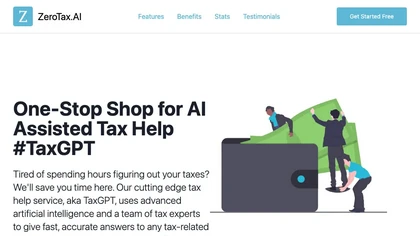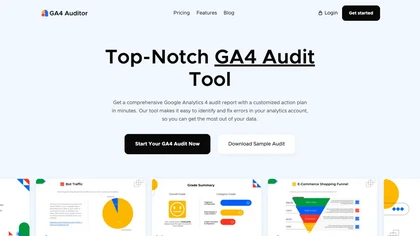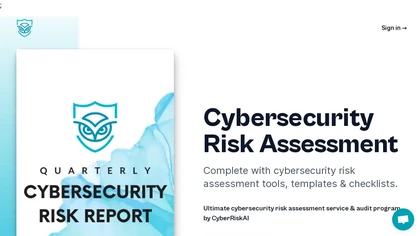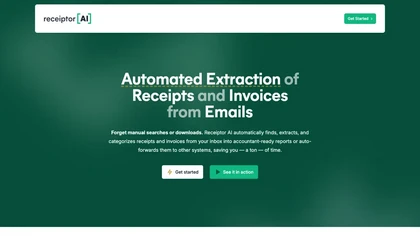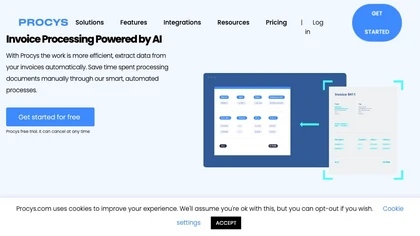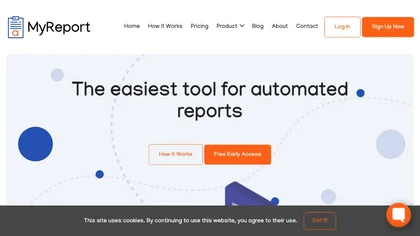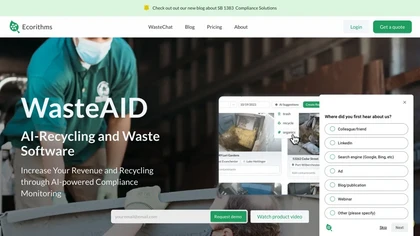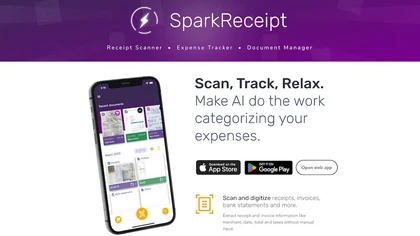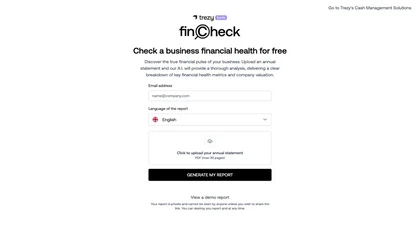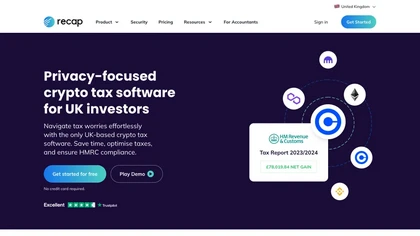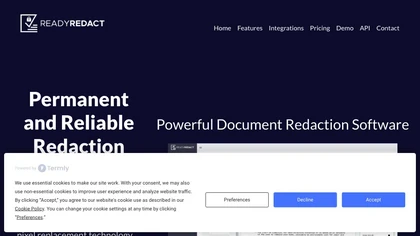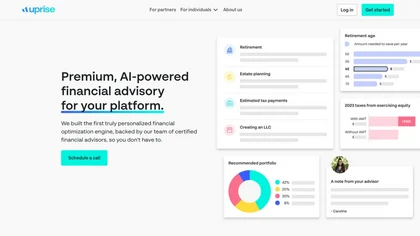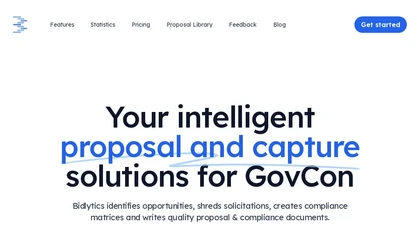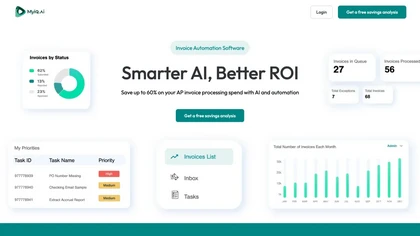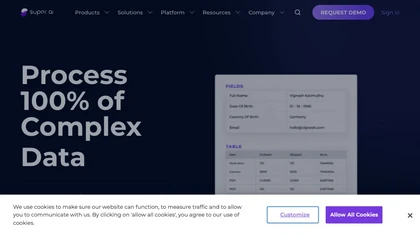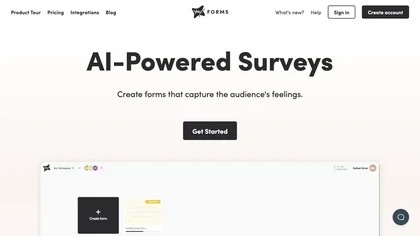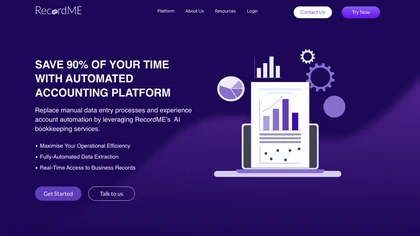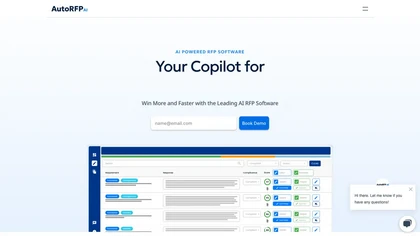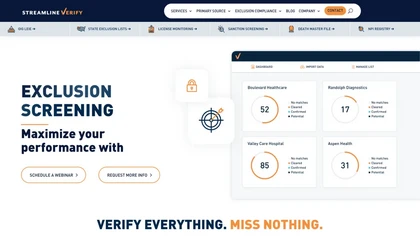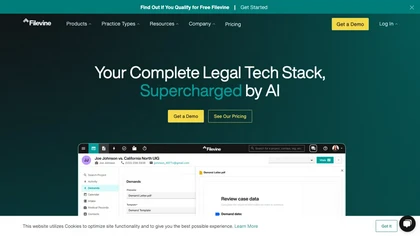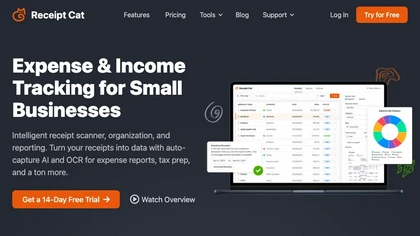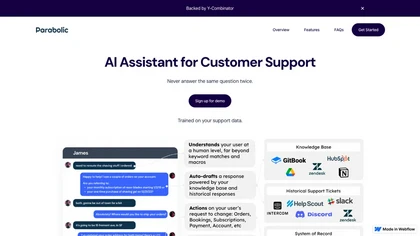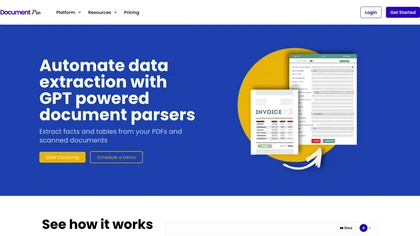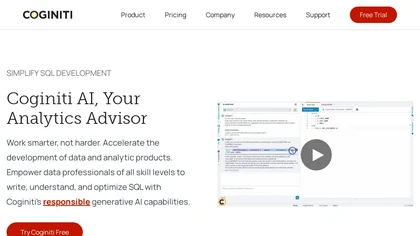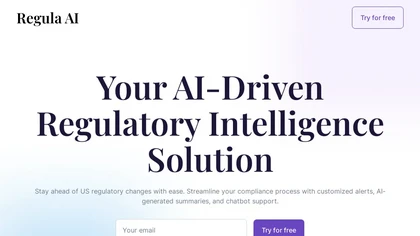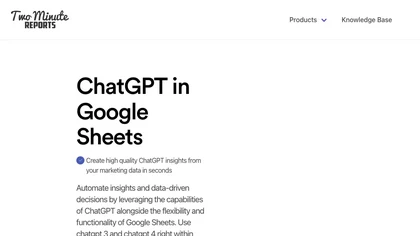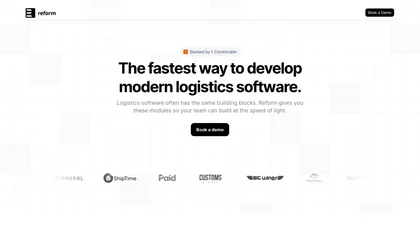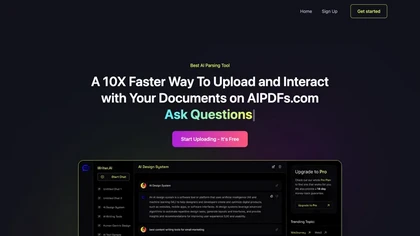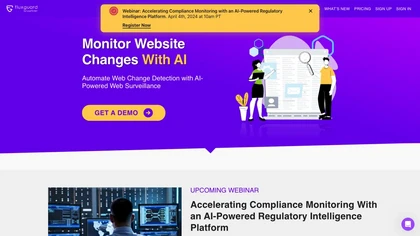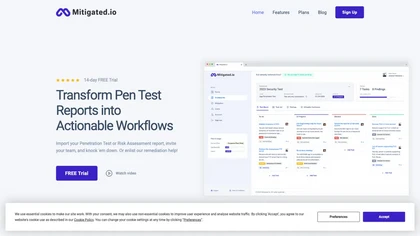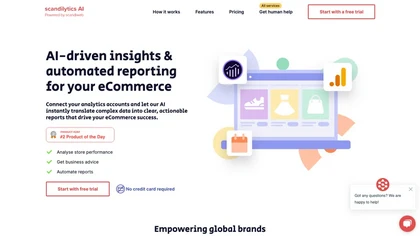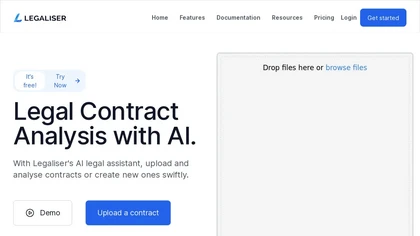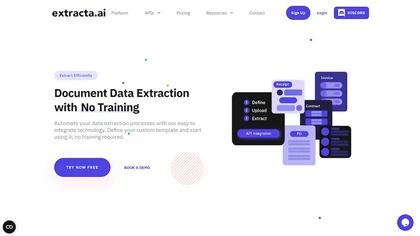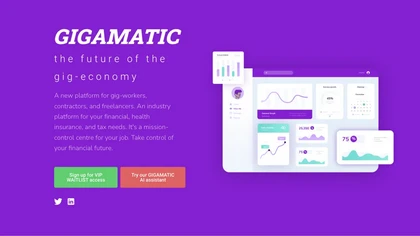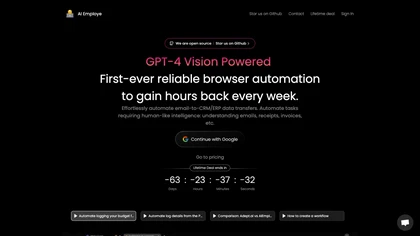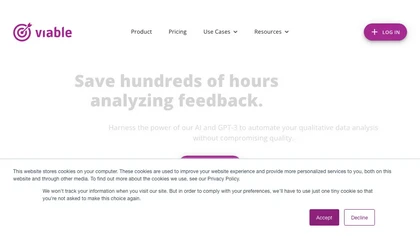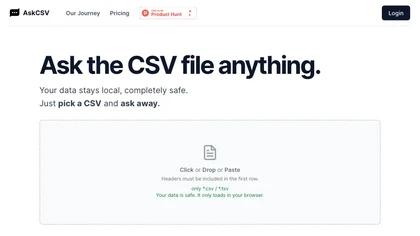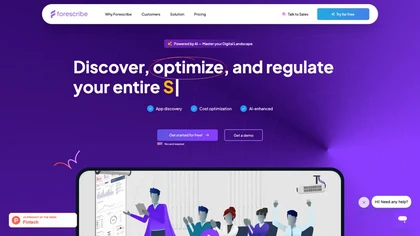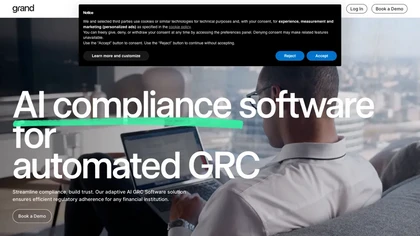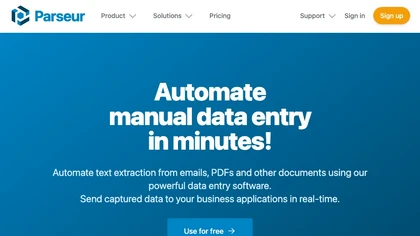AI use cases for Tax Compliance
Generative AI can be applied in various applications for tax compliance. Here are some examples to explore below for inspiration with AI tools to get you started with using AI in tax compliance.
🛠️ 70 AI tools for Tax Compliance
Explore a dynamic list of some of the most popular tools to get you started with various AI use cases and applications for Tax Compliance to streamline your workflows and productivity today.
Kintsugi features
- Automate sales tax lifecycle
- Calculate sales tax
- Track nexus locations
- Economic threshold tracking
- Filing automation
Keepertax features
- Ask tax questions
- Cpa fact-checking
TaxGPT features
- AI-powered tax assistant
- Chat interface for asking tax-related questions
- Ultimate tax support by maximizing deductions
- Efficient tax filing assistance 24/7
- AI trained extensively in tax laws and regulations
TaxPilot features
- Simplifies tax solutions for individuals and professionals
- Expertise in navigating complex tax matters
- Revolutionizes tax solution delivery through AI technology
- Provides actionable and reliable tax solutions
- AI-driven knowledge base for precise answers to tax regulations
UnitedTax.AI features
- AI-powered tax preparation
- Accurate tax return preparation
- Smarter way to handle challenging tax scenarios
- Secure portal for document upload and question answering
- Paperless file storage and digital signatures
Taxly.ai features
- AI-powered tax assistant
- Automated tax filing process
- Expert CPA support
- Personalized tax reports
- Real-time expense tracking
Reconcile features
- Securely connect with over 9,000 banks and financial institutions
- Intake information from various accounts such as banking, bookkeeping, and brokerage
- Provide accurate tax insights
- Maximize tax savings by looking at intricate details of finances and identifying deductions, credits, and strategies specifically tailored to the user's situation and goals
- Real-time ai-tax assistance providing instant answers to queries, expert guidance, and demystifies complex tax concepts
🔥
Create your account, save tools & get personal recommendations
Receive a weekly digest of our handpicked top tools.
Unsubscribe anytime
RiskAssessmentAI features
- Automate security questionnaire responses
- Scan documentation
- Build knowledge base
- Support various assessment formats
- Collaboration between teams
skcript.com features
- Automated processing of tax invoices
- Building AI-powered knowledge base
- Evaluating AI ideas
- Discussing feasibility and budget
- Efficiently managing complex business problems
Simpla AI features
- Personalized tax advice in seconds
- Cutting-edge tax solutions
- AI-powered document processing for automating financial systems
- Upload financial statements for in-depth analysis
- Data security and insightful analytics
AiTax features
- Tax preparation
- Error elimination
- Guaranteed tax amount
- Fee structure
- Legal security
AI-FraudGuard Ecommerce features
- Contactless conversion
- Fraud prevention
- Transaction monitoring
- Compliance processes automation
- Real-time monitoring
Mesha features
- AI-driven bookkeeping and tax solution
- Powered by real human bookkeepers and CPAs
- Accurate monthly financial statements and tax filings
- Tailored insights with real-time financial reports
- Full range of tax solutions with certified tax advisors and CPAs
Decode.tax features
- Data analysis for tax optimization
- Secure storage and sharing of tax returns
- Covering various tax aspects
- Recommendations for lowering tax bills
- Option to delete information at any time
ZeroTax Al features
- Tax assistance
- Chatbot
- Call-in line
- Advanced artificial intelligence
- Fast and accurate answers
- Expert advice
- Risk-free
- 100% satisfaction guarantee
- Ai-generated tax answers
- Low-cost tax professional reviews
CanTax features
- Chatbot interface
- Personalized tax advice
- Comprehensive knowledge of tax legislation
- 24/7 availability
- Business solutions for professional firms
GA4 Auditor features
- Comprehensive audits for Google Analytics 4 accounts
- Detailed audit report generation
- Customized action plan creation
- Detection and resolution of tag health, performance, data integrity issues
- Implementation of best practices and actionable recommendations
Cyberriskai features
- Cybersecurity risk assessment
- Automated quarterly risk audits
- Nist cybersecurity audit framework
- Comprehensive assessment report
- Employee cybersecurity practices
Digits — Accounting features
- 24/7 automated bookkeeping
- AI Advisor for financial analysis & insights
- Intuitive Reports for non-finance professionals
- Live Finance Dashboards for easy business monitoring
- Bank-grade Security for data protection
Receiptor.ai features
- Automated extraction of receipts, invoices, and emails
- Contextual categorization for streamlined accounting processes
- Integration with various email accounts for efficient monitoring
- Real-time expense analytics and sync with accounting software
- Comprehensive document capture for precise financial tracking
Procys features
- Invoice extraction
- Document validation
- Automated data entry
- Digitization of invoices
Fortune features
- Automated transaction categorizations
- Detailed financial analytics
- Forecasting finances across various banks worldwide
- Real-time alerts for every transaction
- Advanced transaction search capabilities
MyReport features
- Automate data collection
- Automate citation
- Description of report topic
- Review of report
- Send report
WasteAID features
- Automatic route auditing
- Integration with existing systems
- Audit over 400k generators and 1m+ pickups
- Detect overflow incidents and identify contamination
- Tracking commercial account compliance
v0 report features
- Custom report generation
- Web scraping
- Automated insights
- File Uploading
SparkReceipt features
- Receipt scanning
- Expense tracking
- Business document management
- Accountant collaboration
- Cloud access
FinCheck by Trezy features
- Financial health assessment
- Annual statements analysis
- Multilingual reports
- Privacy control
- Security features
Recap NFT Gallery features
- Track entire crypto portfolios in one place
- Automatically calculate capital gains and income taxes
- Import transactions from major exchanges like Coinbase and Binance
- Sync real-time API data
- Generate tax reports with ease
hCaptcha features
- Comprehensive security platform
- Instant detection and deterrence of human and automated threats
- Easy deployment with universal support
- Advanced security measures against various threats
- Privacy and compliance features to meet global standards
ReadyRedact Document Redaction features
- Redacting
- Documents
- Privacy
- Data protection
- Compliance
- Gdpr
- Ccpa
- Lgpd
- Popi
- Hipaa
Flagright AI features
- Real-time transaction monitoring
- Case management
- Automated end-to-end solutions
- AI forensics for investigating suspicious activities
- Customer risk assessment automation
Uprise Embedded features
- AI-powered financial advisory platform
- Personalized financial optimization engine
- Automating regulatory compliance
- Concierge services for comprehensive financial planning
- Flexible integration options and white-label solutions
Receiptify features
- Receipt extraction from emails
- Receipt scanning via photo upload
- QuickBooks integration for transaction matching
- Automatic backup to Dropbox or Google Drive
- Download reports in zip, CSV, or PDF formats
Bidlytics - AI for GovCon features
- Enhanced Privacy & Security
- Seamless Bid Discovery
- Automatic Solicitation Shredding
- Compliance Matrix on Autopilot
- Fast & Accurate Proposal Generation
MyiQ.Ai features
- Invoice and line item capture
- Automatic data validation
- Streamlined approvals
- Accrual automation
- AI-powered OCR for global invoice formats
SuperAI features
- Automation of business processes
- Conversion of unstructured data to ai applications
Yay! Forms features
- Form themes
- Drop-off improvement
- Advanced logic for audience segmentation
- Integration with popular tools
- Automatic keyword extraction and sentiment detection
PDF Parser features
- Uploading
- Choosing fields
- Parsing json
- Customizing output
- Customer support
Recordme features
- Automated data extraction
- Real-time access to business records
- Invoice processing powered by OCR technology
- Seamless integration with accounting software
- Efficient file management
AutoRFP
5AutoRFP features
- AI-driven response generation
- Task automation
- Real-time collaboration
- AI content search
- Secure single sign-on capabilities
fdo.ai features
- Financial recordkeeping simplification
- Focus on core business operations
- Suite of tools covering strategy, finance, and operations
- Intuitive accounting
- Seamless marketing solutions
Streamline Verify features
- Screening against various databases including OIG LEIE, state exclusion lists, license monitoring, sanction screening, death master file, and NPI registry
- One-stop portal for quick identification and resolution of compliance screening issues
- API integration for future compliance needs
- Enhances efficiency in executing exclusion screening and credential management
- Trusted by over 10,000 establishments
DemandsAI features
- Teams Permissions model for managing staff access
- Customized Settlements tab for managing and calculating settlement details
- Enhanced conflict checker for addressing potential conflicts
- SidebarAI as a personal AI Assistant for chat conversations and guidance
- AIFields for instant legal document analysis and insights
Receipt Cat
2.8Receipt Cat features
- Ocr scanning
- Expense report generation
- Tax preparation
- Receipt organization
- Custom category creation
Growparabolic features
- Never repeats answers
- Integration with ticketing software
- Human-in-the-loop verification
- Continuous improvement with parabolic trains
- Upsell mode for sales support
DocumentPro features
- GPT-Powered Data Extractors
- AI-Powered OCR
- No-Code Data Extraction
- Template-based Parsing
- Automatic Date Formatting
Coginiti features
- Generating sql using natural language prompts
- Exploring, managing, and analyzing data in a collaborative data workspace
- Optimizing existing sql queries
- Providing detailed explanations and solutions to errors
- Explaining query execution plans for better optimization
- Supporting deep database and object store integration
- Focusing on enhancing query performance to decrease compute costs
SheetGod features
- Generate custom formulas
- Assist with excel calculations
- Solve complex problems
Regula.ai features
- Provides customized alerts
- Generates ai-summaries
- Natural language query support
- Simplifies compliance
- Helps smbs stay informed about regulatory changes
AskExcel features
- Natural language processing for asking questions
- Automatic report and chart generation
- Data analysis for academia and research
- Market data and customer behavior analysis for businesses
- Language flexibility for communication
numerous features
- Categorization
- Extraction
- Data Cleaning
- Sentiment Analysis
- Automate with AI
ChatGPT in Google Sheets features
- 1
- 2
- 3
- 4
- 5
Unfig features
- Automated data capture from various logistics documents
- Universal TMS integrations for seamless connectivity
- Embeddable customer dashboards for real-time data insights
- Scraping information from numerous sources for visibility into logistics data
- Streamlining logistics operations with unprecedented speed and efficiency
AIPDFs features
- Document parsing
- Advanced algorithms
- Question-based interaction
- Free document uploading
- Insight generation
Fluxguard features
- Web Change Monitoring using generative AI
- Screenshots and pixel change detection
- Text change detection and network analysis
- Real-time or scheduled report dispatch
- Email reports with screenshots and text changes
Mitigated.io features
- Transforms penetration test risk assessment reports into actionable workflows
- Leverages collaborative workspaces for task assignment and progress tracking
- Provides AI-enriched mitigation guidance for security vulnerabilities
- Supports easy import of assessment reports
- Enables users to enlist security mitigation services directly from the dashboard
CYBER AI features
- Upload security reports
- Understand security reports
- Unlock data breach reports
- Guide through step-by-step threat hunting process
- Uncover potential cybersecurity threats
Scandilytics features
- Advanced analytics for store performance insights
- Business advice based on data analysis
- Automated reporting processes
- Connection with analytics accounts for data translation
- AI-based trend analysis and opportunity identification
Legaliser features
- Contract analysis
- Drafting
- Fairness assessment
- Risk analysis
- Anomaly detection
Extracta.ai features
- Advanced OCR System
- Fine-tuned Model for data extraction
- Seamless API integration
- Competitive pay-as-you-go pricing model
- Up to 99% accuracy without prior training
GIGAMATIC features
- Financial management tools
- Cloud-based 'work wallet'
- Advanced analytics and personalized insights
- Tailored lending products and insurance plans
- Decentralized, encrypted network for data security
FormToExcel features
- Automated data extraction from PDFs and scanned images
- Recognition of various field types
- Integration with Microsoft Excel
- Direct export of extracted data into Excel spreadsheets
- Upcoming mobile apps for data extraction on the go
AIEmployee features
- browser automation
- email-to-CRM/ERP data transfers
- automating tasks requiring human-like intelligence
- logging in budget and email expense tracking
- creating workflows
viable features
- Automated qualitative data analysis
- Customer feedback understanding
- Nlp technology
- Feedback analysis
AskCSV features
- CSV processing in browser
- Query data
- Generate charts
- Create tables
- Data analysis
- Data security
SeniorDev features
- Automated codebase debt analysis
- 24/7 monitoring
- AI-powered automated test generation
- Automated documentation generation
- 3-step integration process
Forescribe features
- Discover, analyze, and manage integrations of SaaS applications
- Provide real-time insights on SaaS usage and compliance
- Automated compliance checks for SaaS applications
- Offer cost optimization suggestions for SaaS applications
- Enhance transparency in digital landscape governance
Sheshi FR features
- Automated financial reporting
- Fully automated solution for preparing financials
- User-friendly platform
- Automation and AI technology for error reduction
- Customizable financials and automated data import
Grand features
- Automated GRC software
- Efficient regulatory adherence
- Compliance workflows automation
- Policy and regulatory news monitoring
- Insights into regulatory changes
Parseur features
- Automated data entry
- Real-time text extraction
- Customizable templates
- Ocr software
- Structured data conversion
- Integrations with cloud applications
- User-friendly accessibility
